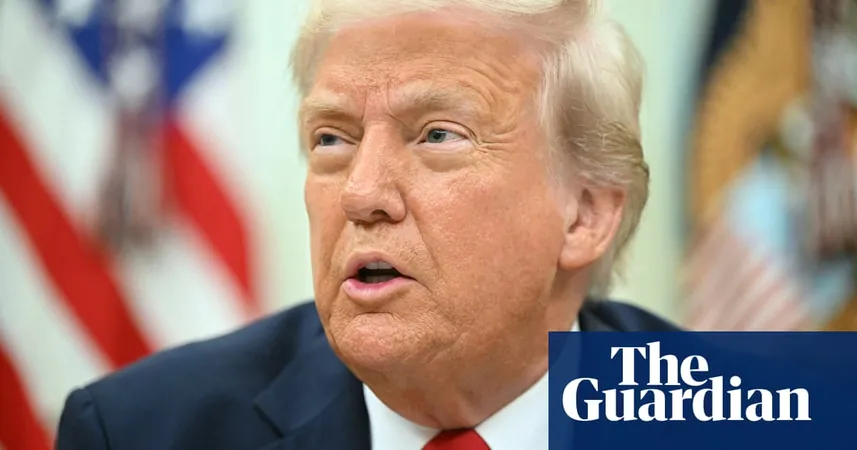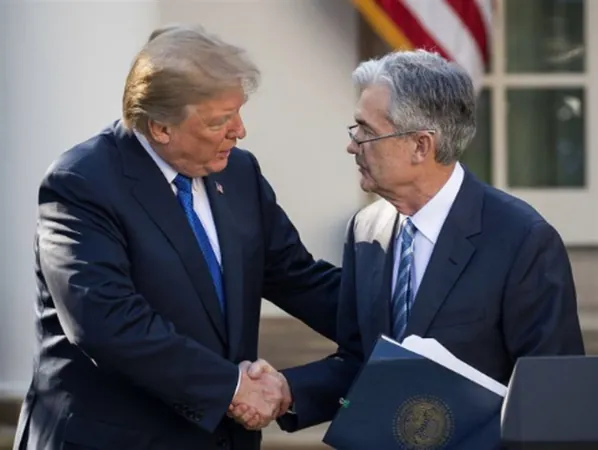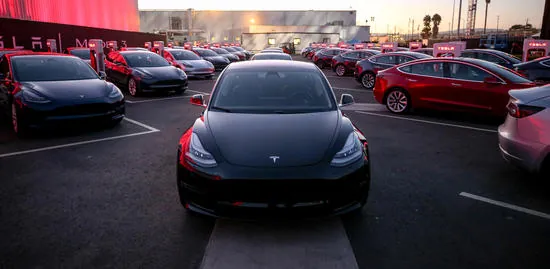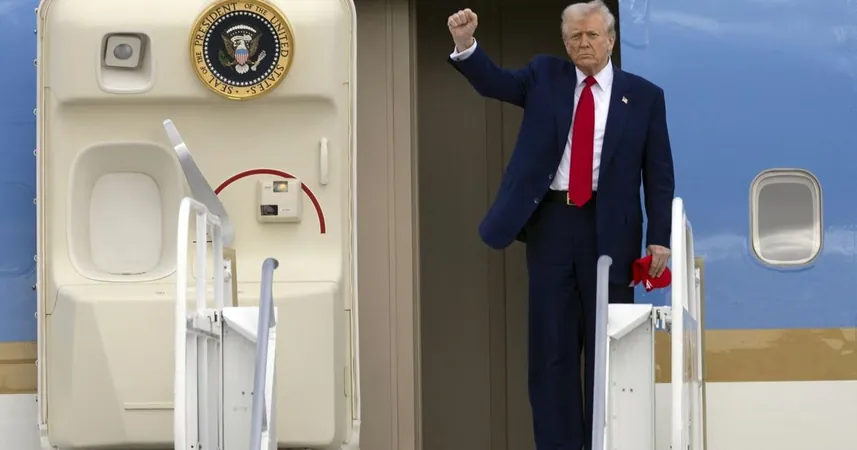
Trump Readies Sweeping Tariffs as Market Turbulence Looms: Will It Spark a Global Trade War?
2025-04-01
Author: Emily
As Donald Trump gears up to unveil a significant set of reciprocal tariffs, global financial markets are on high alert amid growing fears of a potential trade war. Critics warn that Trump's actions could incite retaliation from major trading partners, including China, Canada, and the European Union, who are already bracing for the fallout.
On Monday, Trump stated his intention to be "very kind" towards trading partners when he announces further tariffs, which could happen as soon as Tuesday night. The President contends that such measures are essential to combat what he describes as the continuous exploitation of the U.S. economy by other nations. Trump has even promised a metaphorical "Liberation Day" for America, hinting that substantial changes are on the horizon.
Republican senators are expressing their dissent as Trump’s focus shifts toward Canada. Senator Susan Collins highlighted the potential negative impact these tariffs could have on Maine's economy, expressing her intention to support a resolution to block the tariffs. Senator Thom Tillis echoed these sentiments, advocating for resolving issues with adversarial countries before targeting allies.
In a surprising move, China, South Korea, and Japan recently agreed to strengthen their free trade ties in anticipation of Trump's impending announcement, raising concerns that U.S. actions are pushing allies closer to non-Western economic blocs. Trump, however, remains unfazed, suggesting that his policies would compel allies to reconsider their dependencies.
The markets have already responded to the uncertainty, with key European and Asian indexes reflecting apprehension, although some U.S. indices like the Dow Jones and S&P 500 managed to recover slightly. The anxiety intensified further when Trump claimed his upcoming tariffs would encompass "all countries."
Reports from the Wall Street Journal indicated that Trump's advisers have contemplated imposing global tariffs as high as 20% on most U.S. trading partners, although Trump described these tariffs as "far more generous" than those currently in place. His ongoing focus on tariffs has raised concerns about a looming U.S. recession, with Goldman Sachs now estimating a 35% chance of economic downturn over the next 12 months, up from 20%.
In retaliation, countries like China and Canada have already implemented counter-tariffs against U.S. goods, and the European Union has announced their own measures set to take effect in mid-April. Economists speculate that further retaliatory actions may arise following Trump’s Wednesday announcement.
Kristalina Georgieva, head of the International Monetary Fund, noted that while U.S. tariffs are currently causing anxiety, their global economic impact is expected to be manageable. As such, market analysts advise stakeholders to "expect the unexpected," suggesting Trump may target nations with significant trade imbalances, notably the so-called "Dirty 15," which includes China, the EU, and several others.
Amidst the rising tension, international partners are frantically seeking to mitigate the effects of possible tariffs. Indian officials, for instance, are reportedly considering lowering certain duties to lessen their exposure to any economic fallout.
In the midst of these turbulent economic discussions, key leaders are also engaging in trade talks. UK Prime Minister Keir Starmer expressed optimism about "productive negotiations" towards a comprehensive UK-U.S. trade deal, while German Chancellor Olaf Scholz emphasized the EU's willingness to respond firmly yet remain open to compromise with the U.S.
Experts believe it remains entirely feasible for many of these new tariffs to be postponed or diminished, echoing a previous instance where the U.S. delayed levies on Canadian and Mexican imports to facilitate trade negotiations. As Trump prepares to make his announcement, all eyes will be on how these new tariffs will reshape the global economic landscape—and whether this move may indeed usher in a new era of trade conflicts.









 Brasil (PT)
Brasil (PT)
 Canada (EN)
Canada (EN)
 Chile (ES)
Chile (ES)
 Česko (CS)
Česko (CS)
 대한민국 (KO)
대한민국 (KO)
 España (ES)
España (ES)
 France (FR)
France (FR)
 Hong Kong (EN)
Hong Kong (EN)
 Italia (IT)
Italia (IT)
 日本 (JA)
日本 (JA)
 Magyarország (HU)
Magyarország (HU)
 Norge (NO)
Norge (NO)
 Polska (PL)
Polska (PL)
 Schweiz (DE)
Schweiz (DE)
 Singapore (EN)
Singapore (EN)
 Sverige (SV)
Sverige (SV)
 Suomi (FI)
Suomi (FI)
 Türkiye (TR)
Türkiye (TR)
 الإمارات العربية المتحدة (AR)
الإمارات العربية المتحدة (AR)